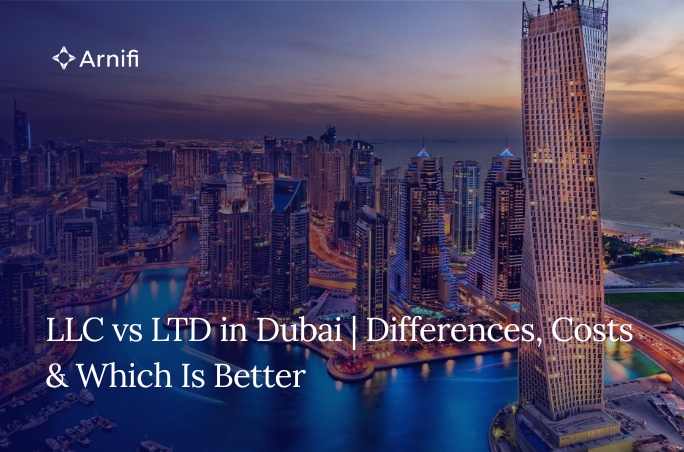Dubai vs. Singapore: The Future of Holding Companies
by Shethana Oct 21, 2024  7 MIN READ
7 MIN READ

Exploring the Advantages, Challenges, and Key Differences for Establishing Holding Companies in Two Leading Business Hubs
A holding company is a main company that owns a big part of one or more smaller companies, often called its portfolio companies. There are several reasons for this. A holding company can make owning and managing assets easier. It can also reduce risk by keeping liabilities separate and finding tax benefits.
The Role of Holding Companies
A holding company mainly exists to own assets and control the voting rights of other companies, called subsidiaries. These assets can include shares, real estate, trademarks, patents, and other types of intellectual property. Holding companies often help manage their subsidiaries by offering guidance and resources while letting each one act as a separate legal business.
Holding companies provide many benefits. By bringing ownership together under one roof, they make complex corporate structures easier. This often leads to faster decision-making and better management of multiple businesses. Holding companies also reduce risk by keeping liabilities apart. If one subsidiary has financial or legal problems, the holding company’s assets are usually safe.
These structures are especially appealing for businesses that operate internationally. They can manage intellectual property rights and financial services, helping the whole group. This interest in holding companies has grown, with places like Dubai and Singapore becoming popular choices for setting them up.
Key Differences Between Dubai and Singapore
Both Dubai and Singapore are great places for holding companies, but they have important differences. These differences are in their laws, tax benefits, and overall business climate. They provide unique pros and cons for investors.
Dubai: Free Zones and Regulations
Dubai, in the United Arab Emirates, is known for its Free Zones. These areas allow 100% foreign ownership and are free from some taxes and rules. This attracts foreign companies that want to enter the Middle East and North Africa (MENA). However, doing business outside these Free Zones on the UAE’s mainland can be difficult.
Singapore: A Strong Legal System
In contrast, Singapore has a strong legal system based on English Common Law. This ensures transparency and a stable environment for business. The corporate tax rate here is 17%, which is higher than the UAE. However, Singapore provides various tax incentives and exemptions. This can make its effective tax rate lower than in the UAE, depending on the industry. Additionally, Singapore’s location in Southeast Asia and its good reputation for protecting intellectual property make it appealing for holding companies in the Asia-Pacific region.
Read: Top Reasons Foreign Businesses Relocate to Singapore
Legal Framework Comparison
The laws that control holding companies in Dubai and Singapore are quite different. This is because each place has its own legal system and economic goals. It is important for investors to know these differences. This will help them set up and run holding companies in these areas.
Dubai’s Legal Structure
Dubai’s legal system combines Islamic Sharia law and civil law. This mix is shaped by its history and culture. The same goes for its rules about businesses, including holding companies. Dubai follows international best practices in corporate governance. However, some finance areas may need to follow Sharia-compliant rules.
The UAE has a federal structure, which adds to the complexity. Federal laws cover important national issues. However, each Emirate, like Dubai, has its own local laws and rules. Businesses must be aware of both federal laws and local laws.
Singapore’s Legal Environment
Singapore has a legal system based on English Common Law. It is known for being clear, efficient, and providing strong protection for investors. The main authority for businesses, the Accounting and Corporate Regulatory Authority (ACRA), offers guidelines and support for starting and running businesses, including holding companies. Registering a company in Singapore is usually simple.
The legal framework in Singapore is always changing to suit the needs of the global business world. Recent changes have improved corporate governance standards. This has made Singapore even more trusted for businesses.
Taxation: A Key Consideration
Taxation is very important for deciding where to set up a holding company. Dubai and Singapore have created tax systems and financial incentives to bring in foreign investment and help businesses grow.
Tax Benefits in Dubai
To help with global business expansion
make sure you choose us.
Get in touch with our team to find out about our approach
Response within 24 Hours
Great, please give us a brief detail about your business.
Dubai and the United Arab Emirates (UAE) are known for their friendly tax rules. Until recently, the UAE had no corporate tax at all. However, starting in June 2023, the UAE introduced a federal corporate tax. The new tax rate is 9%. This tax only affects companies with taxable income above AED 375,000 (around USD 102,000) and does not affect individual income. Additionally, businesses in Dubai’s Free Zones often do not have to pay taxes.
Tax Structure in Singapore
Singapore has a taxation system based on territory. This means that only money earned in Singapore or sent to Singapore gets taxed. Right now, the main corporate tax rate in Singapore is 17%. While this looks higher than the UAE’s new 9% tax, Singapore has many tax incentives, exemptions, and deductions.
Additionally, there is no capital gains tax in Singapore, and non-resident shareholders don’t pay tax on dividends they receive. The personal income tax rates in Singapore are also very low compared to other places.
Strategic Location and Market Access
Beyond the laws and taxes, the benefits of a location are very important when choosing a place for a holding company. Dubai and Singapore have special geographical advantages that attract businesses with certain goals in those regions.
Dubai as a Gateway to MENA
Dubai’s strategic location has made it the “Gateway to the MENA Region.” It sits at the meeting point of Europe, Asia, and Africa. This makes Dubai an important spot for businesses that want to reach these big markets.
Singapore’s Global Connections
Singapore stands out because of its unmatched global connections. It is truly a global business hub. Located in the center of Southeast Asia, Singapore acts as a key gateway to the Asia-Pacific.
Challenges to Consider
Both Dubai and Singapore have big benefits. However, it is important to think about the challenges businesses may encounter. Knowing these details helps set realistic expectations and leads to better decisions.
Challenges in Dubai
Dubai is a popular place for business, but understanding its laws and rules is important. The legal system here can be confusing for businesses that don’t know much about it. For example, businesses on the mainland need local sponsors and must follow certain ownership rules.
Challenges in Singapore
Singapore is known for good business practices and clear rules. However, understanding its rules can be challenging. Businesses need to follow many laws, especially about taxation, employees, and data safety. Not following these rules can lead to big fines or legal issues.
How Arnifi Can Help
As a complete corporate solutions provider based in the UAE, Arnifi is dedicated to helping investors navigate the complexities of establishing holding companies in Dubai and Singapore. Our team of seasoned professionals can assist you in making informed decisions by providing tailored advice on business setup, compliance, and market entry strategies.
With Arnifi’s expertise, you can confidently choose the right location for your holding company and set the stage for long-term success in the vibrant global marketplace. Contact us today to learn more about how we can support your business ambitions
Top Singapore Packages

Related Articles
Top Singapore Packages



